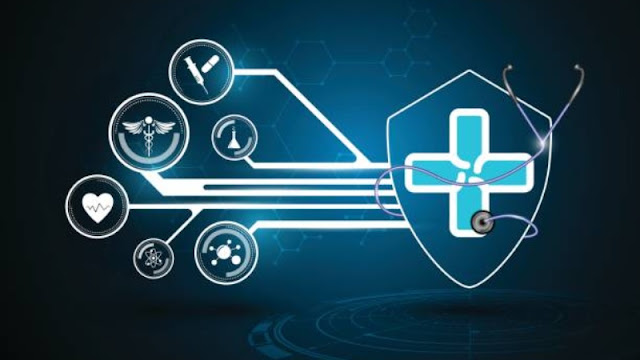- Get link
- X
- Other Apps
- Get link
- X
- Other Apps

Introduction
In the ever-evolving landscape of technological advancements, our understanding and management of health have undergone a profound transformation. One of the critical aspects influenced by technology is our approach to immune health. As we delve into the intersection of technology and the immune system, we find a myriad of innovations that have the potential to reshape the way we perceive, monitor, and enhance our immune responses. Read More: biztipsweb
Digital Diagnostics: Revolutionizing Health Monitoring
Wearable Devices
The rise of wearable technology has brought about a paradigm shift in health monitoring. Devices like smartwatches and fitness trackers now go beyond counting steps; they monitor various physiological parameters, providing real-time data about our bodies. Continuous monitoring allows individuals to track changes in their health, including signs of immune system fluctuations.
Remote Patient Monitoring
Technology enables healthcare professionals to remotely monitor patients, allowing for more proactive management of chronic conditions and early detection of potential health issues. Remote monitoring has the potential to revolutionize how we manage immune-related disorders and track treatment responses.
Big Data and Artificial Intelligence in Immunology
Predictive Analytics
Integrating big data analytics and artificial intelligence (AI) in immunology has opened up new possibilities for predicting disease outbreaks and understanding patterns of immune response. Machine learning algorithms can analyze vast datasets to identify trends, helping researchers and healthcare providers make informed decisions about public health interventions.
Personalized Medicine
Advancements in genomic technologies have paved the way for personalized medicine, tailoring treatments based on an individual's genetic makeup. This level of precision allows for more effective and targeted interventions, minimizing adverse effects and optimizing immune system modulation.
Telehealth: Redefining Access to Healthcare Services
Virtual Consultations
Telehealth has become a cornerstone in healthcare delivery, especially in global health crises. Virtual consultations enable individuals to seek medical advice without physical presence, reducing the risk of infectious disease transmission. This ensures continuity of care and promotes timely interventions for immune-related issues.
Digital Therapeutics
The emergence of digital therapeutics, including smartphone applications designed to deliver clinically validated interventions, has implications for immune health. These apps can provide targeted interventions, such as guided meditation for stress reduction or reminders for medication adherence, contributing to overall immune system support.
Vaccines and Immunization Technologies
mRNA Vaccines
Developing and successfully deploying mRNA vaccines against infectious diseases represents a groundbreaking achievement. This technology, exemplified by the COVID-19 vaccines, allows for rapid vaccine development and can potentially revolutionize our response to emerging pathogens.
Vaccine Tracking and Distribution
Blockchain technology has been explored for enhancing vaccine tracking and distribution. This ensures the integrity of the vaccine supply chain, preventing counterfeit products and ensuring that vaccines reach their intended recipients. Reliable vaccine distribution is crucial for maintaining population immunity and preventing the spread of infectious diseases.
Gamification of Health: Incentivizing Immune-Boosting Behaviors
Wellness Apps and Games
Gamification elements, such as rewards and challenges, are increasingly incorporated into wellness apps and games. This approach can motivate individuals to adopt and maintain health-promoting behaviors, including those positively impacting immune health. Using game mechanics may contribute to creating a more engaging and sustainable approach to health management.
Conclusion
As technology advances at an unprecedented pace, its impact on our approach to immune health becomes increasingly evident. From wearable devices providing real-time health data to the revolutionary potential of mRNA vaccines, integrating technology into healthcare is reshaping how we understand, monitor, and enhance our immune responses. The ongoing synergy between technology and immunology promises a healthier, more resilient global population. As we navigate this landscape, we must remain mindful of ethical considerations, data privacy, and equitable access to these technological innovations to ensure that all share the benefits.
- Get link
- X
- Other Apps